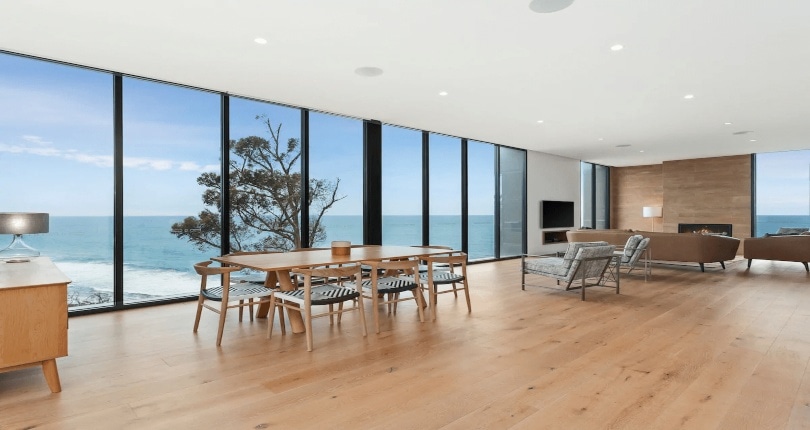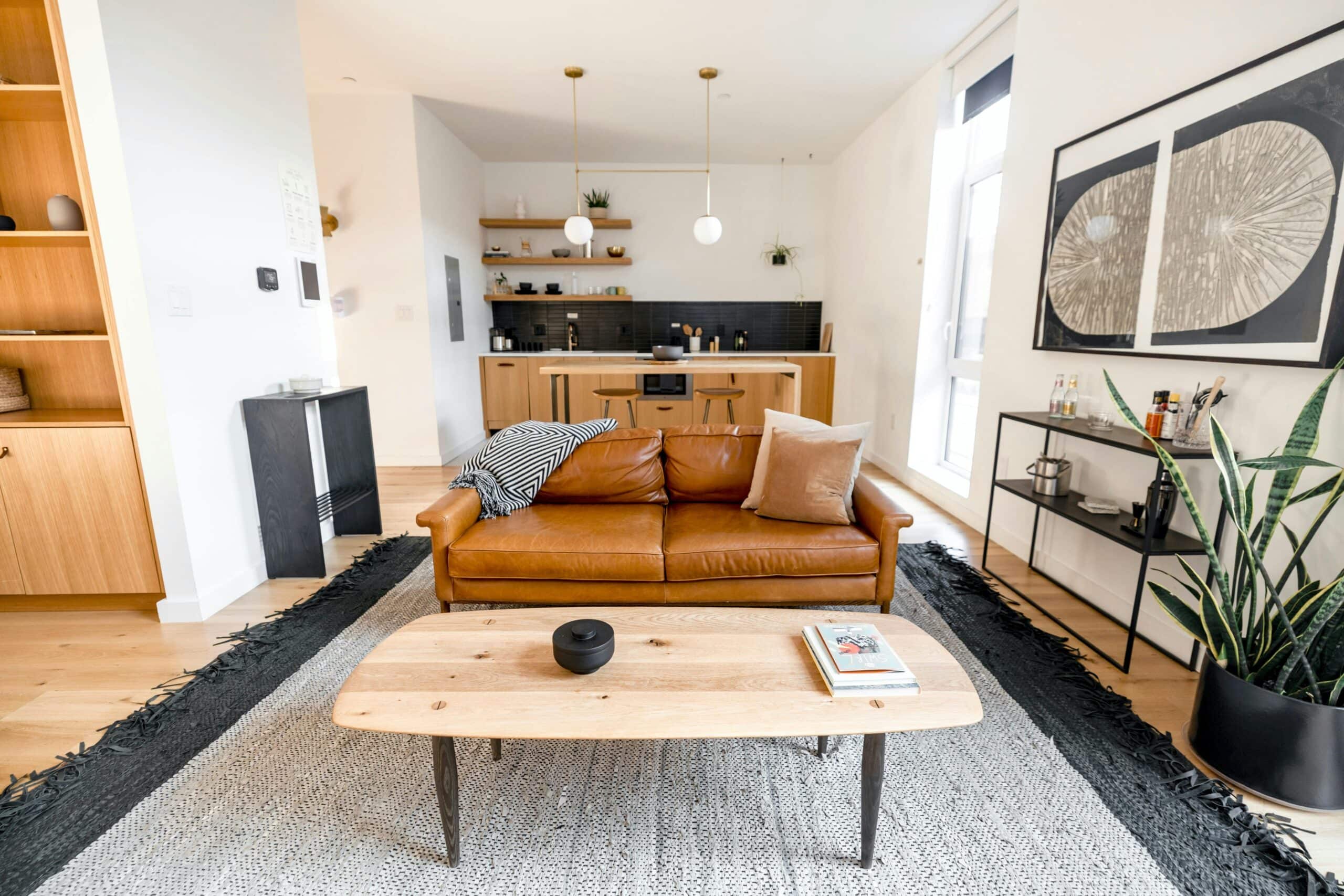Interested in making some extra cash? This might be your calling.
With the rise of the sharing economy, more and more people are turning to Airbnb to make money from their homes. By renting out spare rooms or even entire apartments, Airbnb hosts can earn a healthy return on their investment, so it’s no wonder many Aussies choose to go down this route.
Moreover, with hundreds of millions of guests using the Airbnb platform every year, there’s no shortage of potential customers for short-term rentals.
However, there is a common misconception that you can only benefit from the Airbnb platform if you own a property. This often holds people back, especially those who have yet to enter the property market.
Don’t Own a Property? There’s Still a Way
There are some clear benefits to starting an Airbnb business without owning property. For instance, utilising your primary residence for Airbnb hosting can be a strategic move, allowing you to generate income while meeting the legal requirements for Airbnb properties. This approach makes it convenient for those near their property and opens up the possibility of buying a primary residence that can serve dual purposes.
You could even start an Airbnb experience business, which would involve leading activities or tours for guests visiting your city. Another popular business strategy that eager investors can employ is subleasing.
So, here’s what you need to know.
Airbnb Rental Arbitrage – A.K.A “Subleasing” in the Short-Term Rentals Industry
The term “arbitrage” refers to taking advantage of price discrepancies in different markets. In the case of Airbnb rental arbitrage, investors take advantage of the fact that rental prices on Airbnb are often significantly higher than traditional long-term lease rates.
This strategy involves securing an investment property at below-market rates to sublease it on Airbnb, potentially generating significant income compared to traditional rental properties.
By entering into a sublease agreement with a property owner, investors can secure a property below-market rates and then turn around and rent it out at a higher rate on Airbnb. You can even rent multiple properties to sublease.
While subleasing is above board, it’s only legal if the property owner agrees. In this instance, you’ll generally have to sign two agreements: one agreement would be the lease agreement, which will specify that you need to pay the agreed-upon rental rate each week.
The other would be the subleasing agreement, which stipulates that the owner has explicitly agreed to have you list the property on Airbnb.
But you want these agreements to be airtight and cover all relevant legal considerations, so speak to a qualified legal expert about commercial subleasing agreements.
Know the Risks Beyond Legalities
Beyond considering the legalities around subleasing, you should also consider the risks attached to this business model.
For example, your Airbnb bookings will likely fluctuate, so you’ll have to cover the rent in the months when you have no bookings at all. Managing a rental property through Airbnb requires attention to detail, especially during off-peak seasons. You’ll also be responsible for any property damages that Airbnb guests may cause.
Meanwhile, if you want to generate a passive income to help you fund your own property, you may consider hiring a property management company.
A dedicated property manager can handle the day-to-day operations of your rental, including back-and-forth communication with potential renters, which is crucial for managing a property remotely or if it’s not your primary residence.
A dedicated property manager can take over all the day-to-day operations and optimise your listing so that you rent the property as often as possible.
If you want to find out more, GrowHOST has a team of expert property managers who can help you take your subleasing endeavour to the next level. Best of all, we offer a plug-and-play service to help you get the most out of your listing, from forecasting to making sure you tick all the boxes to boost your success in the market.
Contact us today to find out more.
You might also be interested in reading our guide to the Best Places to Invest in Airbnb for 2023
Become an Airbnb Experience Host and Boost Your Rental Income
If hosting isn’t necessarily for you, did you know you can also dive into experiences instead as an Airbnb investment?
Maybe you know a lot about your city and want to show visitors its best features, for example. If so, becoming an Airbnb Experience Host might be a great way to invest in the short-term rental market without owning a property.
Launched in 2016, Airbnb Experiences is a platform that allows people to connect with locals and book unique activities. From cooking classes and wine tastings to city tours and hikes, there’s an experience for everyone. As a Host, you can choose when, where, and how often you want to host an experience.
Remember, though, that you need to undergo a strict vetting process for the safety of people using Airbnb Experiences. Depending on the activity you’re offering, you might have to apply for a specific licence or follow certain local laws.
The Australian Business Licence and Information Service can help you find out more.
Consider a Property Management Company for Co-Hosting Vacation Rental Properties
If you’d rather not do it all solo, your Airbnb investment strategy could be to pair up with a business partner. Through this approach, you’d be a ‘co-host’ and share the responsibilities with the property owner, acting almost like a ‘second in charge’.
As an Airbnb co-host, you would manage the listing and communicate with guests on behalf of the property owner. This role particularly appeals to property investors looking to maximise their rental yield without the direct responsibilities of ownership. It includes handling reservations, coordinating check-in and check-out, and providing local recommendations.
In exchange for your services, you would receive a percentage of the rental income, which can significantly increase the rental yield for both you and the property owner.
For many people, this arrangement has several advantages over owning an Airbnb property, including needing little to no capital because you’re not buying a property outright.
It also allows you to work with multiple property owners and manage multiple listings, making it a lucrative option for both the co-host and the property owner.
And since you’re not responsible for the property itself, this is a low-risk way to get started in the world of Airbnb investing, offering a unique opportunity for those interested in the Airbnb market without the commitment of property ownership.
Key Takeaways for Investment Property Owners in the Rental Market
- There are many ways to get involved with Airbnb without owning any property yourself, marking a unique entry into the broader spectrum of property investment.
- From subleasing and rental arbitrage to becoming an experienced host or co-hosting, there’s sure to be an option that fits your interests and investment goals.
- This flexibility is facilitated mainly by short-term rental platforms, which have revolutionised how property owners can maximise their earnings.
- However, for those considering the long-term implications of their investment strategies, comparing Airbnb with traditional investment properties leased to long-term tenants can provide valuable insights.
- The long-term rental market offers a more stable and potentially lucrative alternative or complementary strategy to short-term Airbnb rentals, especially in a saturated market.
- So, if you’ve been thinking about making money like other Airbnb business owners but don’t own any property, now you know it’s still possible.
If you would like to explore how GrowHOST can help with your property management needs, feel free to get in touch today.





